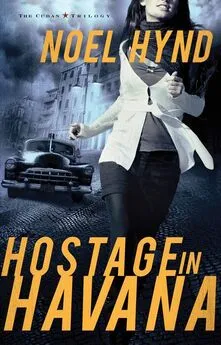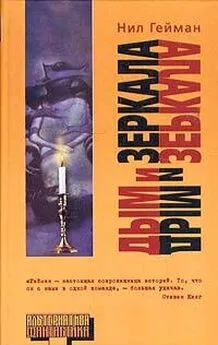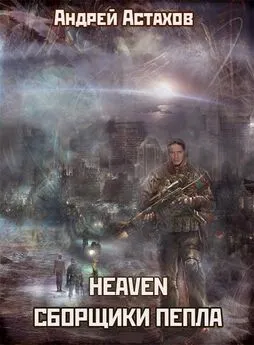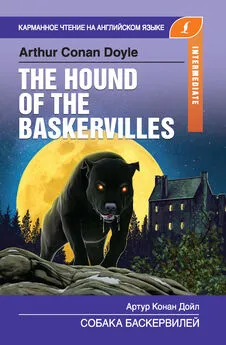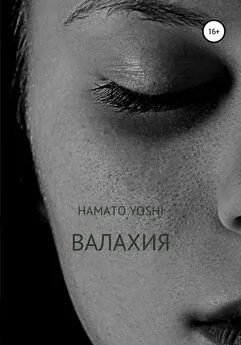Noel Hynd - Hostage in Havana
- Название:Hostage in Havana
- Автор:
- Жанр:
- Издательство:неизвестно
- Год:неизвестен
- ISBN:нет данных
- Рейтинг:
- Избранное:Добавить в избранное
-
Отзывы:
-
Ваша оценка:
Noel Hynd - Hostage in Havana краткое содержание
Hostage in Havana - читать онлайн бесплатно полную версию (весь текст целиком)
Интервал:
Закладка:
De Salvo’s fingers fiddled with some paperclips on his desk.
“When one of Castro’s bodyguards turned against him and offered to kill him, the CIA gave the guy a fountain pen full of poison. It worked like a syringe, shooting poison out of its tip. That didn’t work either.”
“Why didn’t they just go the normal route?” Alex asked. “Guns. Assassins.”
“Oh, they tried that plenty of times,” De Salvo said. “The CIA sent Cuban exiles into Cuba with telescopic rifles, but Fidel was too smart. He knew what had happened with Trujillo in the Dominican Republic …” De Salvo paused. “And what had happened to Kennedy. I mean, read all that JFK assassination stuff, and the words Mafia and Cuba surface almost every other sentence.”
“So I recall,” she said.
“Last time I checked,” De Salvo concluded, “there’d been more than seven hundred plots to kill Castro, mostly involving the mob, hatched out of the United States. Imagine the odds. Seven hundred different plans against the man – and not one worked! In spite of everything, Castro lived into his eighties and ruled for more than forty years. Amazing.” De Salvo frowned. “Did you talk about any of this with your Guarneri pal?”
“Not in any detail,” she said.
“Detail,” he said repeating. “You know what they say: The Devil is in the details. You can imagine how many devils there are in the Cuban details.”
Late that evening, around 10:00 p.m., Alex phoned Guarneri.
“Hello, Paul,” Alex said. “We need to talk.”
“Always a pleasure. Talk now.”
“About that trip. Cuba. Is the role of your wife still open?”
There was a pause. “I think I have someone,” he said. “Why?”
“Looks like I might be able to do it. If we do it soon.”
“Soon would work for me,” he said. “That’s what you wanted to talk about?”
“Yes, but I was thinking we should talk in person,” she said.
“That works too. When?”
“Tomorrow?”
“Excellent. What about tomorrow evening?”
She drew a breath. “Paul,” she said, “a sniper took a shot at me yesterday. Rooftop to window. They just missed.”
It was his turn to pause. Then, following a charming expletive, he said, “Yeah, I saw that on television. That was you?”
“I’m keeping a low profile until they catch the shooter. I need to stay out of view. My boss suggested I make the Cuba trip. They can tie it to one of their assignments. I’d need to be in and out of Cuba in a week to ten days. Still want me?”
“Yes,” he said, “of course. I was about to hire another woman, but – “
“Don’t do anything yet,” she said. “It’s hypothetical until I get an official okay.”
“Where are you now? I can send a car.”
“I’ve got bodyguards,” she said. “FBI. They know how to drive.”
“Feds, huh?” He laughed. “Want to come over to Brooklyn tomorrow night? My family’s here, part of it anyway. My sister. Two of my kids, who’ve lived with me since my divorce. We can talk over dinner. We have a few guest rooms. You could stay a night or two. I’ll even put up your Feds.”
“I’ll be there for dinner. How’s that?”
“Perfect,” Paul Guarneri said.
At 11:15 that night, another shoe dropped. Special Agent Walter MacPhail phoned with a small report on his evening’s activities. He had had his minions run Paul Guarneri’s name through their computers. Guarneri may not have been perfectly clean, as Alex had suggested, but he wasn’t dirty either. He was a usable asset. He even had a family history of anti-Castro activity, which gave him a perverse pedigree with the CIA. Better still, as recently as eight days earlier, the one-time defector, Roland Violette, now in his late seventies, continued to make noises to his Swiss-American contacts about wanting to “go home,” about finishing his life in America, and being buried in American soil. It was, Violette maintained, his final wish.
If Guarneri could get himself and Alex into Cuba, CIA contacts and sources from off the island could get them out. So unofficially, the proposed trip had a green light. But like anything else involving American operations overseas, it had to be a quick hit: in and out fast or it would inevitably end in disaster.
Also, Alex learned, New York City Police and the FBI were scouring the city for Manuel Perez. So far, they’d come up cold. The man knew how to disappear when he had to.
TWENTY-FOUR
Paul Guarneri’s home was a Federal-style red-brick townhouse on Cranberry Street in Brooklyn Heights, a mini-estate behind an unobtrusive facade. MacPhail and Ramirez delivered her there by 7:30.
Guarneri, wearing a blue button-down shirt and khakis, emerged to welcome his guests personally. He and Alex’s guards sized each other up, and Guarneri offered a handshake, which the Feds accepted.
“Normally when you guys are out in front of my place it’s for a wedding. You show up to write down license-plate numbers and take pictures. I have to send my brother Sonny out to smash cameras.”
The Feds looked at Guarneri, then at each other. Then they all laughed.
“Why don’t you guys come on in for some dinner?” Guarneri asked. “You’re supposed to keep watch on Alex. You can sit at the table and watch her that way.”
It violated no rules, so they accepted.
The building was from the 1920s but had been renovated recently. The entrance area was a great rotunda with twelve-over-twelve windows. On the right, it led to a pine galley with original paintings. Beyond that, Alex could see a den. On the left, the rotunda led to a living room and a formal dining room.
Dinner was at a long table. There were introductions all around. The oldest of Guarneri’s children, Lisa, was away at boarding school in Massachusetts. “The same place one of our nitwit presidents went,” as Guarneri explained it. The other two children were at home, however; daughter Lauren, twelve, sat next to her brother, Joey, who was eight.
Guarneri’s housekeeper, a Guatemalan woman named Florence, cooked and served the dinner. Guarneri conversed with her in Spanish, as did Alex and Lauren. Rounding out the attendees was Guarneri’s sister, Diana, who lived in Glen Cove, farther out on Long Island. She often served as a parent-in-absentia for the children, Paul explained, while he was away on trips. Diana was mid-forties, childless, and divorced.
“Diana will be here when I’m in Cuba,” Guarneri said, “however long my absence may be.” Guarneri had no trouble speaking with the FBI agents present. After dinner he offered them cigars from his collection. They went outside to smoke a couple of San Cristobols while Guarneri led Alex into a den so they could talk privately.
“So,” he said, sitting in a leather arm chair, “someone took a shot, huh?”
“Right when you phoned,” she said. She settled into a plush chair across from him and distantly wondered what it would be like to live in such a lavish home. The home where she had grown up in California would fit into a quarter of this space. Yet it had been honest, warm, and happy. Her thoughts bounced back to the present. “I turned to pick up the cell phone and the bullet missed. It was your call.”
“That’s why the bullet missed you?”
“That’s the way I see it. Thanks for the call. Sorry I couldn’t take it,” she said.
“Great timing, huh?” he said.
“Providential,” she said. “I’d like to think there’s something I have left to do here on earth and so God kept me in the game.”
“You religious?” he asked.
“More than most people,” she answered. “Less than some others.”
“I’m a lapsed Catholic myself,” he replied. “I have more questions than answers. Isn’t that often the case with thinking people?”
“Often it is,” Alex said.
“Anyone know who fired the shot?” he asked.
“There are some credible leads,” she said, “but nothing I can discuss.”
“I understand,” he said.
The room was dominated by a large-screen television on one side, some New York Yankees memorabilia on the other. Two large leather chairs and a matching sofa over plush wall-to-wall carpeting. A man’s lair. In one corner was a bag of golf clubs thrown up against some fencing equipment, including an assortment of epees and sabers.
“Can Florence get you coffee?” he asked. “An after-dinner drink maybe?”
“I’m fine, thank you.”
Then Paul was on his feet. “I’d like you to see something,” he said. He went to a drawer and found a passport. He opened it, then walked to Alex and handed it to her.
“My ID while I’m traveling to Cuba,” he said. “I hope this isn’t a deal breaker.”
The document was Canadian, or appeared to be. She opened it. It bore the name of Richard Valenteri of Toronto, an identity as fictitious as the passport itself.
She glanced up at him, partly in dismay, partly in admiration as she turned the pages. “This is rather good,” she said. “It has a nice well-used feel, neither too full nor too empty. Ever used it before?”
“No.”
“Of course,” she said. “I suppose officially I don’t know about this,” she said. She closed it and examined the binding. “I can’t find a flaw in it,” she said. “Very professional. I won’t even ask where you bought it. Expensive?”
“These things are,” he said, taking it back. “It won’t stand scrutiny at a port of entry to the U.S.,” he said, “but it’ll protect me in Cuba.” He put it away in the same drawer and remained on his feet. “I’ll be back in a second,” he said. “I want to see if the kids are doing their homework.” Then he was out the door.
She surveyed the room. The bookshelves on the wall were bulging, mostly with histories and biographies. A few empty spaces were marked by bookends and small statuettes, frequently those of New York Yankees players: Mantle, Reggie, Guidry, Mat-tingly, Jeter, Posada, A-Rod. One set of bookends was marked with the coat of arms of Cornell University, while another set was a reproduction of the New York City Library Lions, and there was an impressive statuette of Rodin’s The Kiss.
After a minute Guarneri reappeared, looking cross, carrying a bottle of water. “My girls are my students and my son is my terrorist,” he said. “Lauren’s studying. Her sister’s at prep school, so now she wants to go away to school too. Joey’s into World of Warcraft. Can’t get him to open a book.”
“Sounds like a typical American family,” she offered.
His expression changed. He smiled. “Maybe,” he said. He closed the door. “Can’t say I blame Joey for wanting to have his fun,” he said under his breath. “Kids should be able to enjoy childhood. I never had many games when I was a kid. We lived a Spartan existence: a two-bedroom in Hempstead. My mother got money from my dad but was always afraid it would end, which it did one day in 1973.”
“The day he was murdered.”
“Correct,” he said.
“Joey’s named after your father then?” Alex said.
“No, Joe DiMaggio,” he said. Then he grinned. “Yeah. He’s named after my dad,” he said. He sipped the bottled water. “Sure I can’t get you a drink?”
She declined again and he sat.
“How did you land at Cornell?” she asked.
“My father had a funny attitude toward formal education,” Guarneri said. “He didn’t have one himself. He was an illegal immigrant from Naples in the 1930s. Jumped ship in Miami, eventually got mobbed up. His education was the waterfronts, the bars, the brothels, and eventually the casinos and racetracks. So he figured I should have a real education – the best he could find. He was street smart and wanted culture; I got culture and wanted street smarts. But the old man named the tune. So I got sent to tough parochial schools on Long Island. My dad always said, ‘You get an education; no one can ever take that away from you.’ So he was on my case all the time about studies. Bless him. I was his only son, at least that I know of. He steered me away from his sordid world. He did a lot of things wrong, but he did some things right as well.”
Читать дальшеИнтервал:
Закладка:
